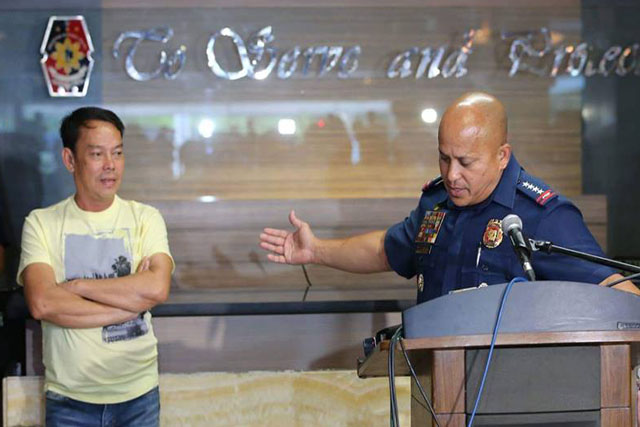The coffee princess
MANILA, Philippines - “If I was a man, I would have been sultan of Sulu,” says Princess Kumalah Sug-Elardo as she talks of her parents whose marriage marked the joining of two royal houses of Sulu. Though it was not in her destiny to become sultan, Princess Lalah has been dedicating her life work to the service of her people.
Born in a remote area just outside Jolo, Princess Lalah moved from one place to another to pursue her studies and work. “From mountain to sea to city,” she says, “I’ve witnessed the people’s experiences from the grassroots... nakita ko talaga ang sitwasyon nila (I have really seen their situation).” The princess adds, “Naiintindihan ko (I understand) both Muslims and Christians,” noting that when she was growing up, there was no religious conflict in Sulu. She is married to a Christian, a military man at that, Col. Peter Elardo.
When Princess Lalah became a volunteer for the Department of Social Welfare and Development, however, Sulu was at its peak of conflict and distrust was high. “I was assigned to the most remote places,” she recalls. “There were places where no one could go, but I could because of the respect the people had for my family... loyalty na hindi kayang bilihin (that cannot be bought).” The princess was often assigned to the farthest and most dangerous areas because of her unique position and privileges. She remembers being assigned to an island at the very tip of the country that is so small and remote it is now considered part of Tawi-Tawi.
“The experience was both challenging and unique,” muses the princess, who became a volunteer at the age of 19. Among her many stories, she recalls bringing those wounded due to armed conflict from Simunon to Sulu for treatment – a 24-hour journey by sea, with the danger of being ambushed along the way.
 The exotic alamid coffee comes from coffee beans picked from the droppings of civet cats.
The exotic alamid coffee comes from coffee beans picked from the droppings of civet cats. Because of her years of dedicated service as volunteer, Princess Lalah eventually found herself with a formal appointment from the DSWD. “I am really a social worker at heart,” she says, noting that she studied social work in college, though she was already an active social worker at that time.
Her assignment at an evacuation center in Sulu – one that no other social worker wanted to handle – was another eyeopener. This camp accepted evacuees from different islands in the vicinity and was also near a military camp. “I could see that the people were displaced. Nobody wanted to go there to serve,” she recalls.
Finally, Princess Lalah was assigned to one of the most troubled areas – Patikul. Also assigned there was a young soldier named Peter Elardo and the two found themselves working together to bring peace and order to their community.
In 2001, Princess Lalah faced another battle – she was diagnosed with breast cancer. “Three months before, a cousin died in my arms, also because of cancer,” she shares. “Cancer is really painful,” she admits. “I tried to conceal it... I tried to hide it from my family.” The princess made a decision not to seek Western medical treatment. At that time, her daughter was pursuing a degree in medicine and the dedicated mother preferred that their money be used instead for her daughter’s education. Ready to accept her fate and succumb to the cancer, it was her son who changed her outlook in life. “Sabi nya, ‘Lumaban ka. Di ka nga namatay sa bala sa Sulu tapos magpapatalo ka lang dito (He said, Fight it. You weren’t killed by the bullets of Sulu, why let this defeat you)’.”
Motivated to fight the cancer, the princess learned about the many uses of the Neem tree as treatment. Using only this alternative natural medicine, and with her warrior-like strength of spirit, she survived.
Starting with a new lease on life, Princess Lalah’s life seemed to come full circle when her daughter, now a doctor, decided to become a volunteer. Deciding to accompany her daughter to ensure her safety in Talipao, Sulu – a place infamous for the heavy presence of rebels – the princess once again found herself in remote places where no other social worker would want to be assigned.
“Nagmana ata sa akin (I think she takes after me),” the princess says of her daughter with justifiable pride, adding that her daughter is the only medical officer to be able to complete her medical contract in the area – others could not handle the challenges of serving the troubled area.
 Princess Lalah (far right) helps the women of her community choose ripe coffee berries.
Princess Lalah (far right) helps the women of her community choose ripe coffee berries. Once again, the princess found herself in the midst of her people, becoming aware even more of their needs. Returning to her hometown of Panamao, she was surprised to see the place had not changed. “Parang walang (It was as if there had not been any) changes since childhood.” She then went on to find ways to help her community beyond waiting for government aid.
Identifying the lack of readily available running water as one of the community’s direst needs with the water source three barangays – some 5 kilometers – away, Princess Lalah led the community in laying down the pipework for water to reach them.
Together the community raised P163,000 and prepared to work on the project that was anticipated to last three months. “The project was completed in 21 days,” Princess Lalah reports, “because everyone participated – men, women, children.”
Following the success of their first project as a community, Princess Lalah decided to formalize the group. At the cooperative’s first meeting, she was expecting 60 people; 163 came. “They had already seen the positive results even before we started.”
Princess Lalah woke up, so to speak, to the coffee industry when she was riding a jeep just outside Sulu. Along the way, coffee berries left out on the street was a common sight, and the princess was surprised when the jeepneys would just drive over them without thinking twice. As she found out later, having vehicles drive over the berries was the local method for de-pulping.
Knowing that there must be a better way to process coffee – one of the most abundant natural resources of Sulu – Princess Lalah started attending seminars on coffee processing.
She also learned that alamid coffee – coffee picked from the droppings of civet cats – was a highly sought-after delicacy abroad. “Sa amin tinatapon lang yung alamid coffee (In our place, alamid coffee is just thrown away).”
When her group, People’s Alliance for Progress Multi-purpose Cooperative, started their coffee project, she recalls that the locals were earning very little for their coffee. Farmers had to go through traders in Sulu who would then go to traders in Davao or Cagayan de Oro before reaching the actual buyer.
“Walang identity ang coffee ng Sulu (Sulu’s coffee had no identity)... it was also of poor quality,” she says of the state of Sulu’s coffee industry at the time the co-op began their initiative. Cutting out the middlemen enabled farmers’ usual earnings to double during their first harvest working with the coop. Using processes that she learned from the various seminars she attended, Princess Lalah was able to apply and teach these to the farmers, significantly raising the quality of their harvest as well.
Introducing the wet process, as well as a depulper and other simple technology, the need to have jeepneys run over the coffee berries became a thing of the past.
Three years later, the cooperative’s project has truly flourished. Their product is called Sulu Royal Coffee which comes in two variants – civet coffee and the original blend. The original blend, Princess Lalah explains, is unique compared to other brands and blends because it uses handpicked, all-ripe, mature coffee berries. “Lahat red, walang halong green (All are red, none are green),” she says. The product has been exported and has received good feedback from its international buyers.
Their endeavor has been noticed by many agri-business and technology organizations who have given their support to the cooperative’s project. Among the project’s supporters is the Philippine Coffee Board, headed by co-chairman and president Chit Juan, who even visited Sulu to see their operations. Because of the superb quality of the product, DTI has endorsed it as well.
Royal Coffee, which comes in various sizes, is packaged in an abaca bag and decorated with a piece of fine woven cloth in vivid patterns. The packaging is as important as the coffee itself and it likewise promotes the traditional arts of Sulu.
As of now, the coffee has to be brought to Manila for roasting and packaging, but Princess Lalah hopes to find resources or groups that can help bring post-harvest equipment to Sulu to be able to do the roasting and packaging there.
“Everybody is working and earning. Some have sold their guns for capital,” the princess shares. “Everybody is involved... with coffee alone we can really promote peace.”
The business has been so successful and profitable that many former Moro National Liberation Front (MNLF) combatants have laid down their arms to take on the more lucrative and more peaceful coffee growing enterprise. “Peaceful na kami doon (We’re peaceful there now),” says the princess, adding, “Now everyone is earning... the farmers are now entrepreneurs.”
Though it may not have been in her destiny to become the sultan of Sulu, Princess Lalah has proven to be a formidable leader. “My vision is to change the image of Sulu from a war-torn area to the coffee capital of the Philippines... happy, peaceful, and earning.”
Sulu Royal Coffee is available at the Echostore in Serendra, Bonifacio Global City.
- Latest
- Trending



















